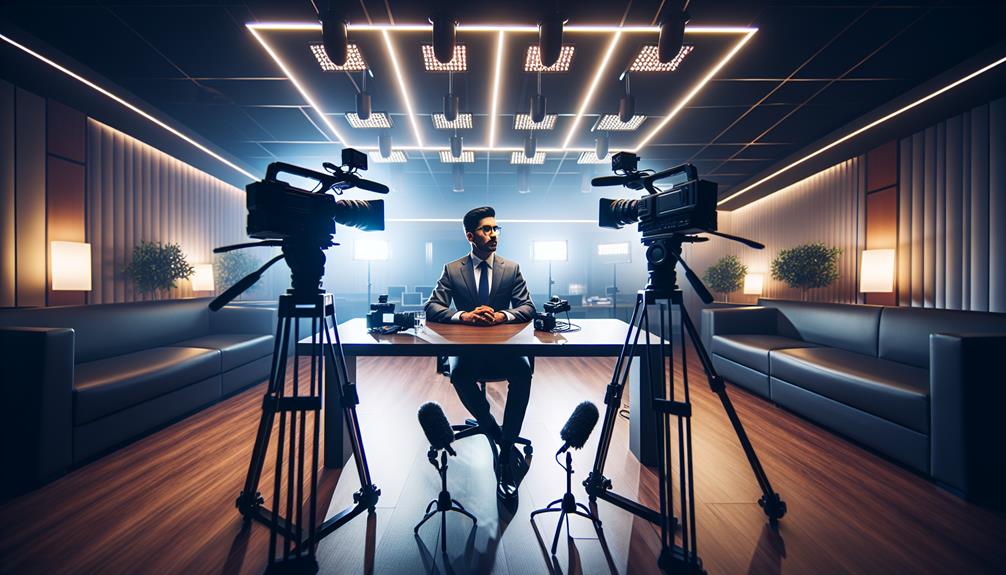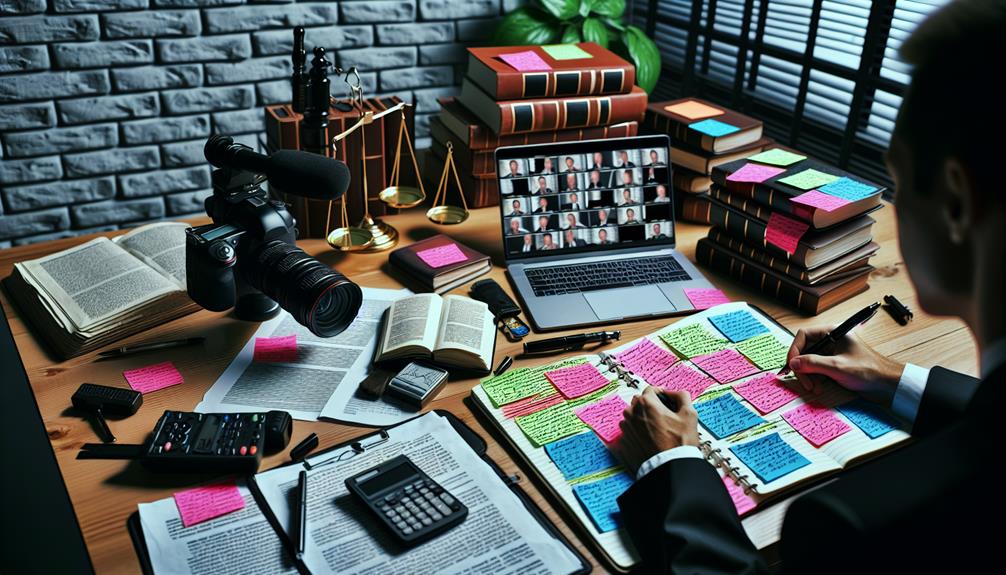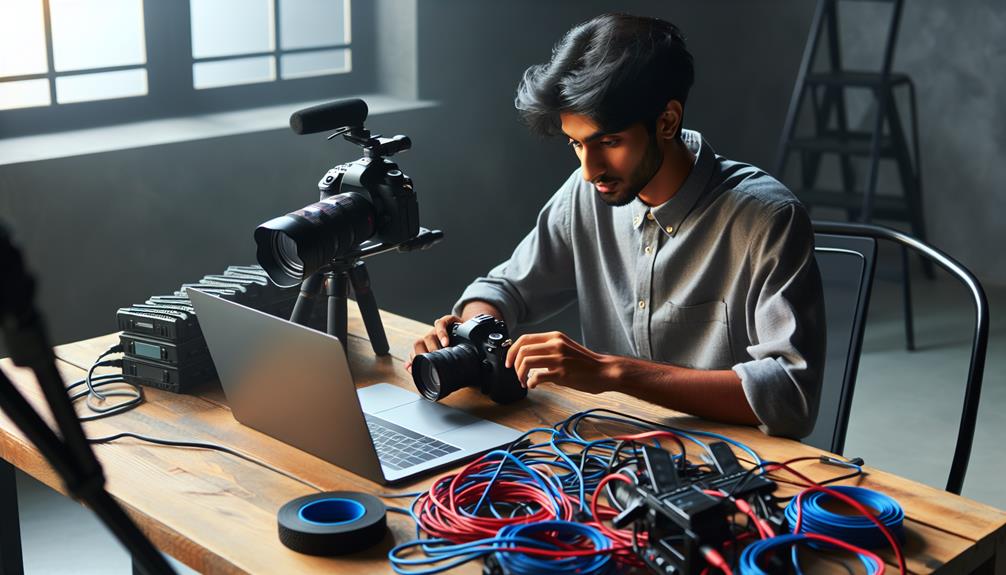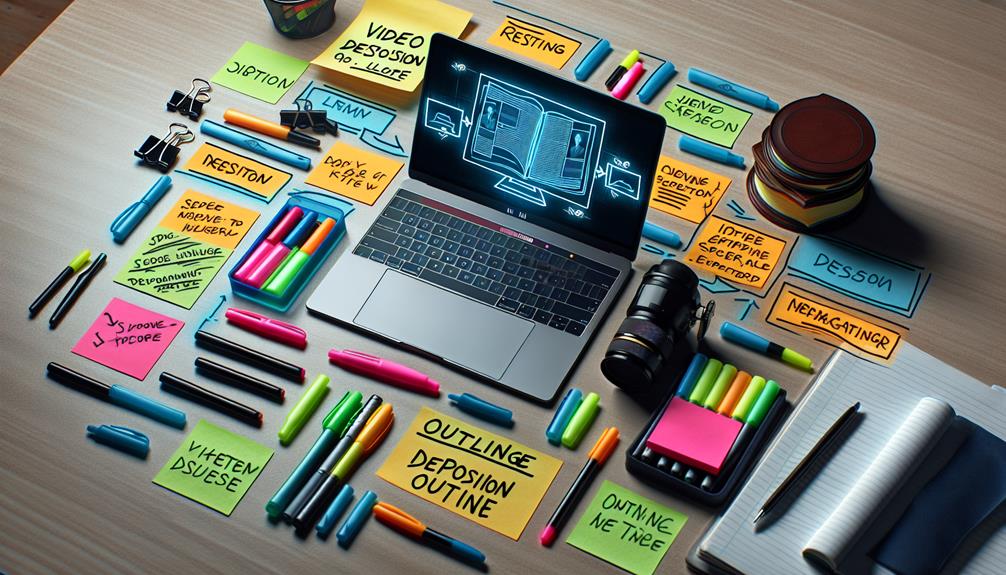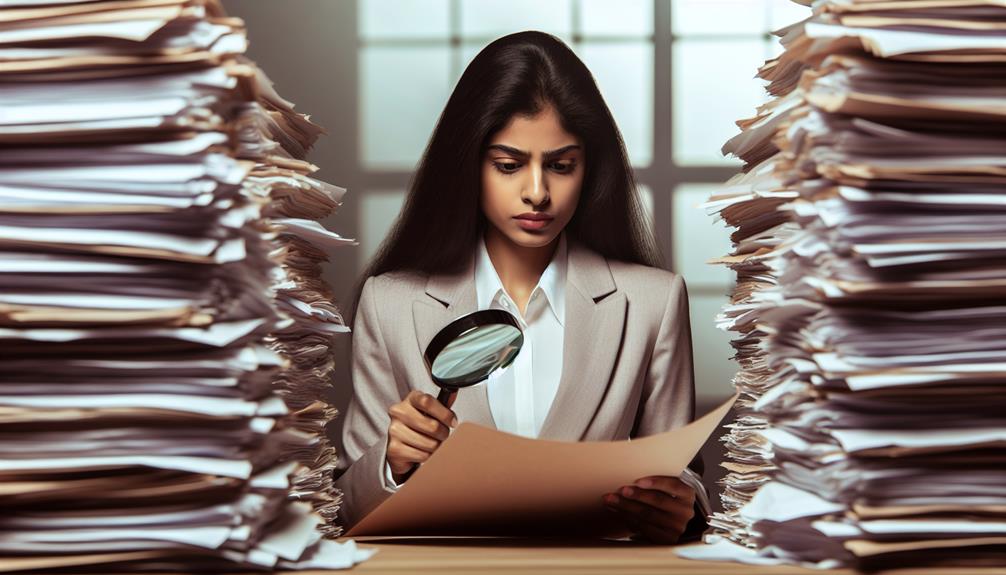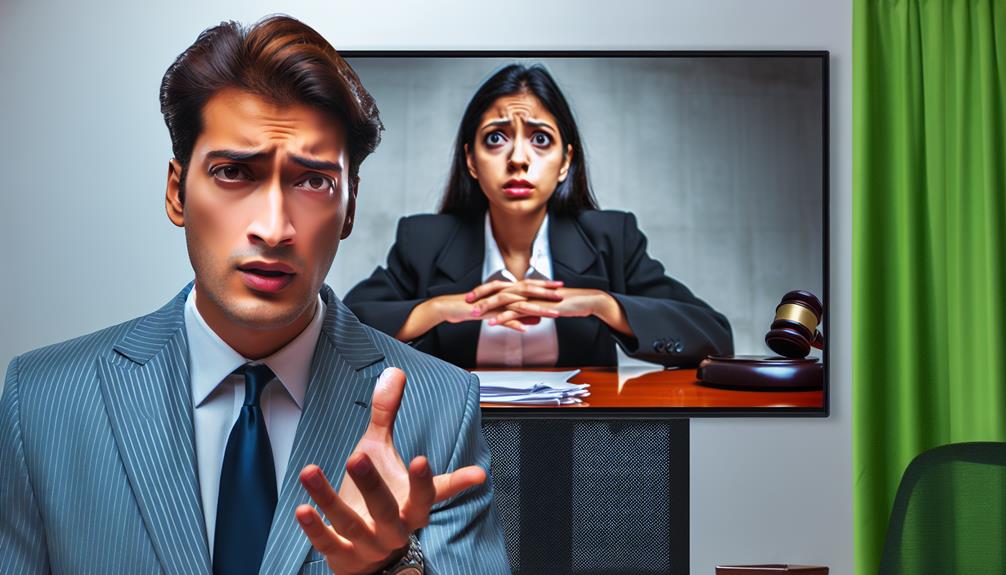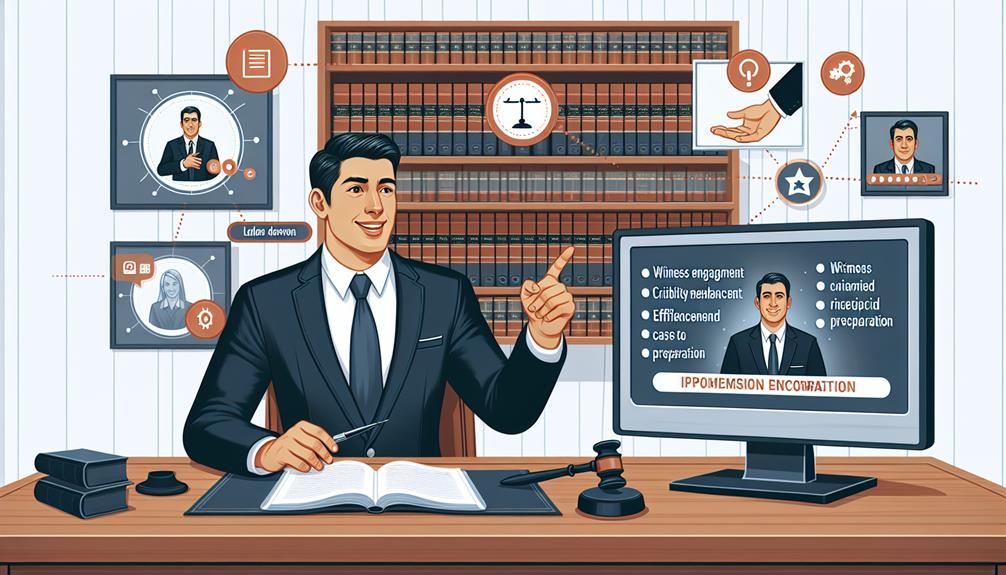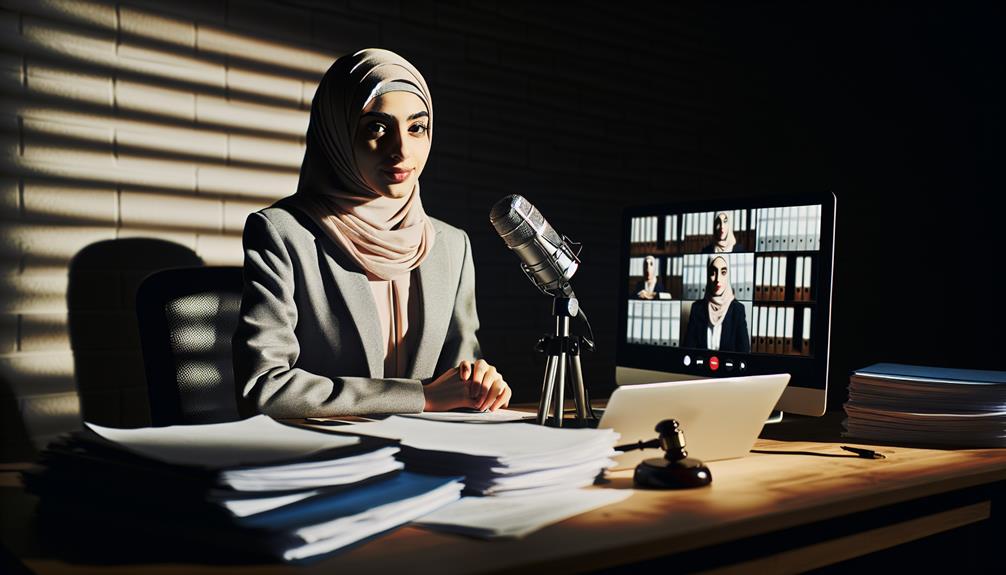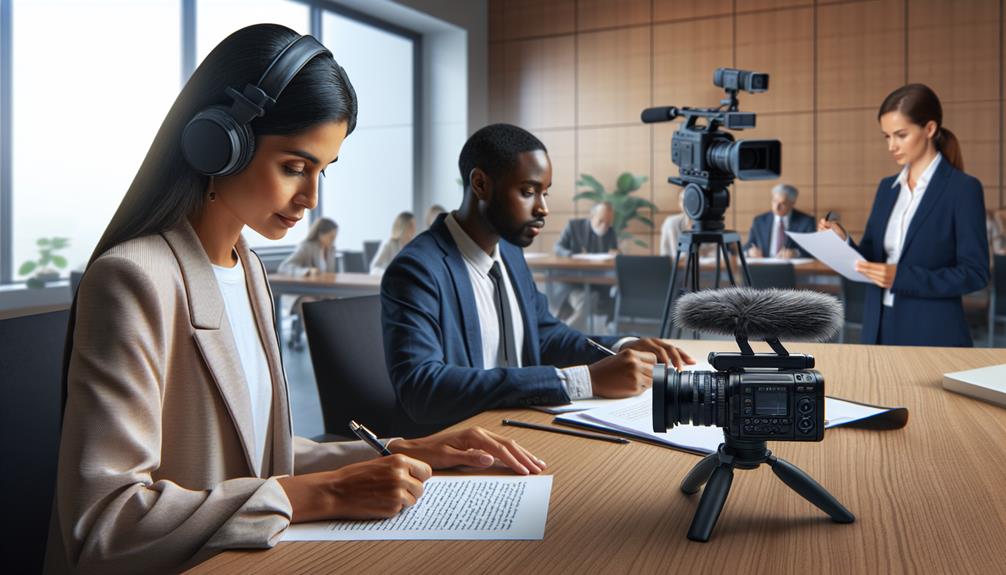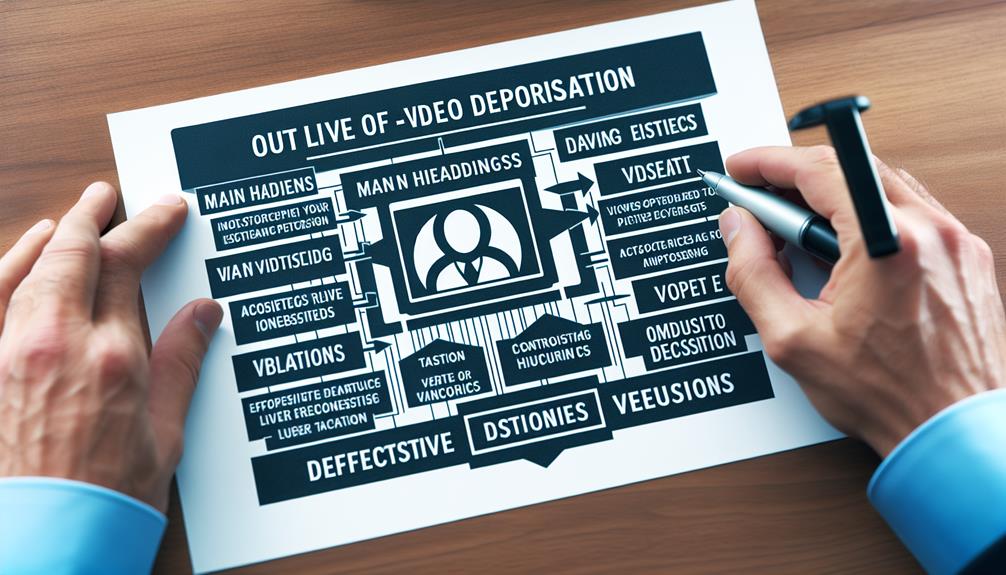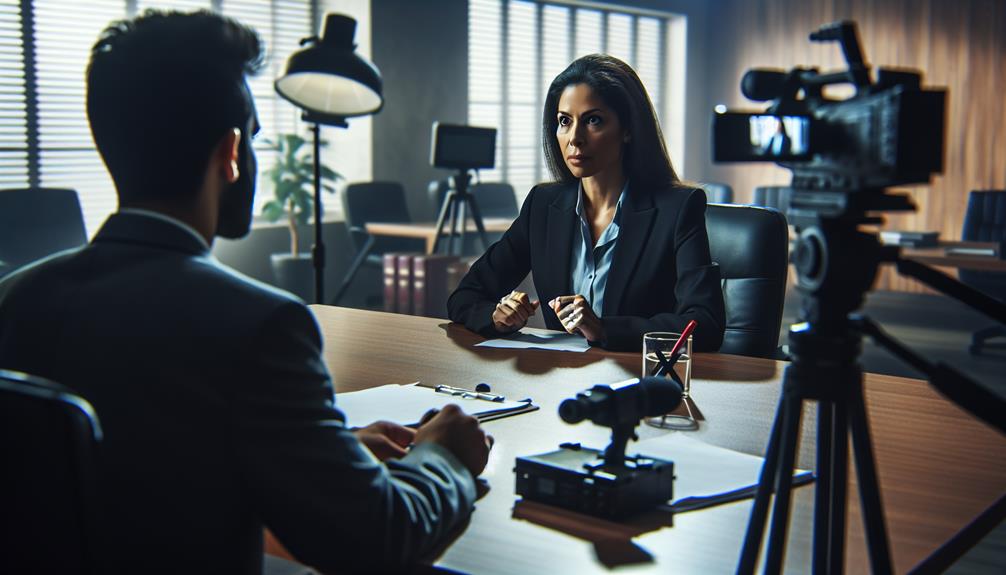As the saying goes, 'Preparation is the key to success.' And when it comes to mastering video depositions, this couldn't be more true. The ability to effectively capture testimony, nuances, and body language can make or break a case.
In this discussion, we will explore the essential techniques that can help you excel in video depositions. From gathering crucial documents to creating a comfortable environment, from preparing witness testimony to practicing non-verbal communication, we will delve into the strategies that can elevate your video deposition skills to new heights.
So, let's dive in and uncover the secrets to mastering this critical aspect of legal proceedings.
Key Takeaways
- Thorough document organization and legal research are crucial for a successful deposition.
- Establishing a strong rapport with the witness enhances their performance during the deposition.
- Proper setup of video equipment, including lighting and audio, ensures high-quality footage.
- Creating a comfortable environment by actively listening, managing distractions, and engaging in small talk puts the deponent at ease.
Gathering Essential Documents

When preparing for a video deposition, one of the crucial steps is gathering the necessary documents. Document organization and legal research play a key role in ensuring a successful deposition. The process of gathering essential documents requires careful planning and attention to detail.
Effective document organization is essential for a smooth deposition. By categorizing and arranging the documents in a logical manner, you can easily access and present the relevant information during the deposition. This not only saves time but also enhances the overall efficiency of the process. Additionally, organizing the documents in a clear and concise manner helps to convey your arguments effectively.
Legal research is another vital aspect of preparing for a video deposition. Thoroughly researching the relevant laws, regulations, and precedents can provide you with a solid foundation for your case. This allows you to anticipate and address any potential challenges or objections that may arise during the deposition. By staying well-informed, you can effectively counter any opposing arguments and strengthen your position.
Innovative tools and technologies are constantly evolving in the legal field. Embracing these advancements can significantly enhance the document organization and legal research process. Utilizing digital platforms and software can streamline the gathering, organizing, and accessing of documents, making the deposition preparation more efficient and effective.
Preparing Witness Testimony
With the essential documents gathered and organized, it's now crucial to focus on preparing the testimony of the witness. Witness credibility plays a vital role in the success of any deposition. As preparation is the key, it's important to ensure that the witness feels comfortable and confident in their knowledge of the case. This can be achieved through effective questioning techniques.
When preparing witness testimony, it's essential to establish a strong rapport with the witness. Building trust and credibility can greatly enhance their performance during the deposition. By creating an open and supportive environment, the witness is more likely to provide accurate and reliable information.
Effective questioning techniques are crucial in eliciting meaningful testimony. Asking open-ended questions encourages the witness to provide detailed and insightful responses. These questions should be clear, concise, and focused, guiding the witness in a logical and chronological manner. By employing active listening skills, the attorney can adapt their questioning to address any gaps or inconsistencies in the witness's testimony.
It is also important to consider the witness's demeanor and body language during the preparation process. Identifying any potential weaknesses allows for targeted coaching and improvement. By addressing these issues early on, the witness can present themselves confidently and credibly during the actual deposition.
Setting Up the Video Equipment
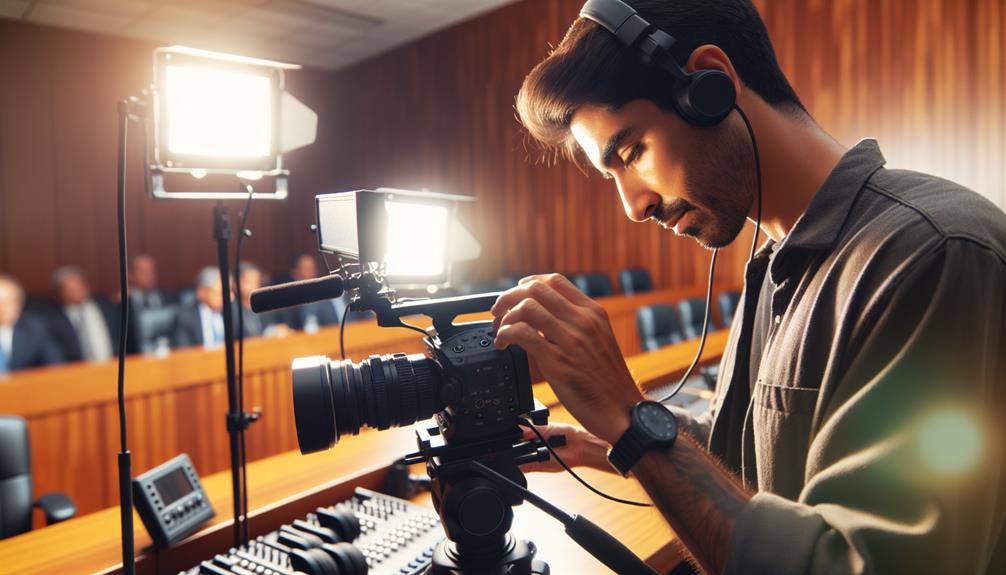
To ensure a smooth and successful video deposition, it's crucial to properly set up the video equipment. The lighting setup plays a significant role in capturing high-quality footage. Adequate lighting helps to eliminate shadows and ensures that all details are clearly visible. Consider using a three-point lighting technique, which involves a key light, fill light, and backlight. This setup creates depth and dimension, enhancing the overall visual quality of the video.
In addition to lighting, audio quality is equally important. Clear and crisp audio ensures that all spoken words are captured accurately. To achieve this, use a high-quality microphone positioned close to the witness to minimize background noise and interference. Test the audio equipment before the deposition to ensure optimal sound levels and clarity.
Creating a Comfortable Environment
Creating a comfortable environment is essential for ensuring a smooth and productive video deposition experience. When it comes to video depositions, creating rapport with the deponent is crucial. By establishing a comfortable and relaxed atmosphere, you can encourage the deponent to open up and provide more insightful and accurate information. Building rapport can be achieved by starting the deposition with a friendly and professional introduction, engaging in small talk to put the deponent at ease, and actively listening and responding to their concerns.
In addition to creating rapport, managing distractions is another important aspect of creating a comfortable environment. Distractions can disrupt the flow of the deposition and hinder the quality of the video recording. To minimize distractions, it's important to choose a quiet and well-lit location for the deposition. Ensure that all electronic devices are turned off or set to silent mode, and that the room is free from any unnecessary noise or interruptions. By proactively addressing potential distractions, you can create a focused and conducive environment for the deposition.
Practicing Non-Verbal Communication

Establishing a comfortable environment during a video deposition not only involves creating rapport and managing distractions but also requires a keen focus on practicing non-verbal communication techniques. Body language and facial expressions play a pivotal role in conveying messages effectively and building trust with the viewers.
When it comes to body language, it's crucial to maintain an open and relaxed posture. Sitting upright with shoulders back and maintaining eye contact with the camera portrays confidence and engagement. Avoid crossing arms or fidgeting, as these gestures can indicate defensiveness or discomfort.
Facial expressions are equally important in video depositions. A genuine smile can help create a positive atmosphere and establish a connection with the viewers. However, it's also essential to be mindful of your facial expressions when listening to the opposing counsel or witness. Maintaining a neutral expression demonstrates attentiveness and impartiality.
Practicing non-verbal communication techniques requires self-awareness and constant monitoring of your own body language and facial expressions. By mastering these techniques, you can effectively communicate your message and build credibility during a video deposition.
Conclusion
Mastering video depositions requires meticulous preparation and attention to detail.
Gathering essential documents, preparing witness testimony, and setting up the video equipment are crucial steps in ensuring a successful deposition.
Creating a comfortable environment and practicing non-verbal communication further enhance the effectiveness of the video deposition process.
By following these techniques, legal professionals can conduct depositions with confidence and efficiency, ultimately yielding valuable insights for their cases.

